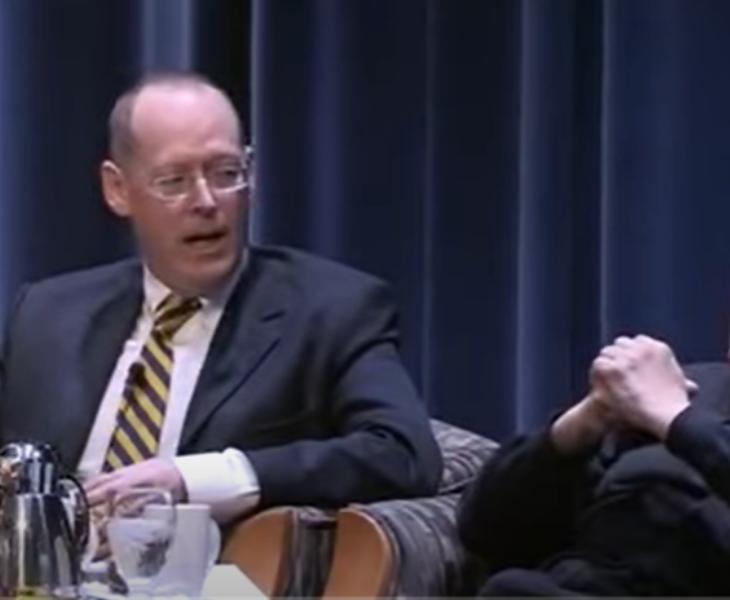How Catholic Theology Influenced Dr. Paul Farmer’s Vision for Global Health
February 24, 2022

Dr. Paul Farmer, a relentless advocate for global health who changed how public health officials respond the diseases from HIV to Ebola, died earlier this week on the grounds of a hospital and medical school he built in Rwanda. Dr. Farmer, who was brought up in a Catholic family, frequently connected issues of global health, human rights, and faith.
In a January 2014 essay in Sojourners Magazine, Dr. Farmer said his two greatest teachers were both Latin American Catholic priests: Archbishop Oscar Romero of El Salvador and the Dominican priest Gustavo Gutiérrez of Peru.
Through Gutiérrez he connected with the teachings of liberation theology, a Christian ethic that inspired his outlook and work. As M. Sophia Newman notes in her 2016 essay on Dr. Farmer for Religion & Politics, the theology prioritizes a preferential option for the poor, an end to structural violence, and the importance of accompaniment, being present with those who are suffering.
“Over the past 25 years, I’ve not learned much theology (medicine and anthropology were more than enough for me),” Dr. Farmer wrote, “but some of us have taken a number of key concepts from liberation theology and applied them in medicine.”
Dr. Farmer and Gustavo Gutiérrez went on to become friends and to author a book together, “In the Company of the Poor: Conversations with Dr. Paul Farmer and Fr. Gustavo Gutiérrez.”
“Any serious examination of epidemic disease has always shown that microbes also make a preferential option for the poor,” Dr. Farmer wrote. “… Imagine how much unnecessary suffering we might collectively avert if our health care and educational systems, foundations, and nongovernmental organizations genuinely made a preferential option for the poor?”
The concept made it into the mission statement of the organization he founded, Partners in Health.
In his medical practice, Dr. Farmer changed the mindset of practitioners from a place of asking “’Why don’t patients comply with our treatments?’ we began to ask, ‘How can we accompany our patients on the road to cure or wellness or a life with less suffering due to disease?’ Again, the notion would be welcome in the world beyond the church: How many institutions, including those responsible for foreign aid, desperately need to replace time-limited, contractual, and almost invariably inegalitarian arrangements — the aid worker and the aid recipient — with genuine accompaniment and solidarity? My guess: almost all of them.”
Dr. Farmer wrote that his experiences working in Haiti reignited his faith: “There was a filament, a bit stronger than imagined, made visible in part by my Haitian hosts and patients and friends, and in part by Catholic social activists working against poverty in settings as different as tough neighborhoods in Boston, the farms of North Carolina, and the slums of Lima.”
In a 2008 interview about his work in Haiti, Dr. Farmer describes how his experiences with a population devastated by a hydroelectric dam sparked “a lifelong fascination with rights, not to just the right to vote and other civic and political rights, but also the right to eat and the right to have access to healthcare.”
Dr. Paul Farmer died on Monday, February 21, at the age of 62. He was the Kolokotrones University Professor of Global Health and Social Medicine at Harvard Medical School, Chief of the Division of Global Health Equity at Brigham and Women’s Hospital in Boston, co-founder and chief strategist of the international nonprofit Partners in Health, the author of several books, and, in 2020, the winner of $1 million Berggruen Prize, “given annually to thinkers whose ideas have profoundly shaped human self-understanding and advancement in a rapidly changing world.”
Monique Parsons contributed to this article.
Share
Related Articles
American Civic Life
American Civic Life
Faith Based Efforts Work in Vaccine Uptake: Now Let’s Make it Easy
American Civic Life



